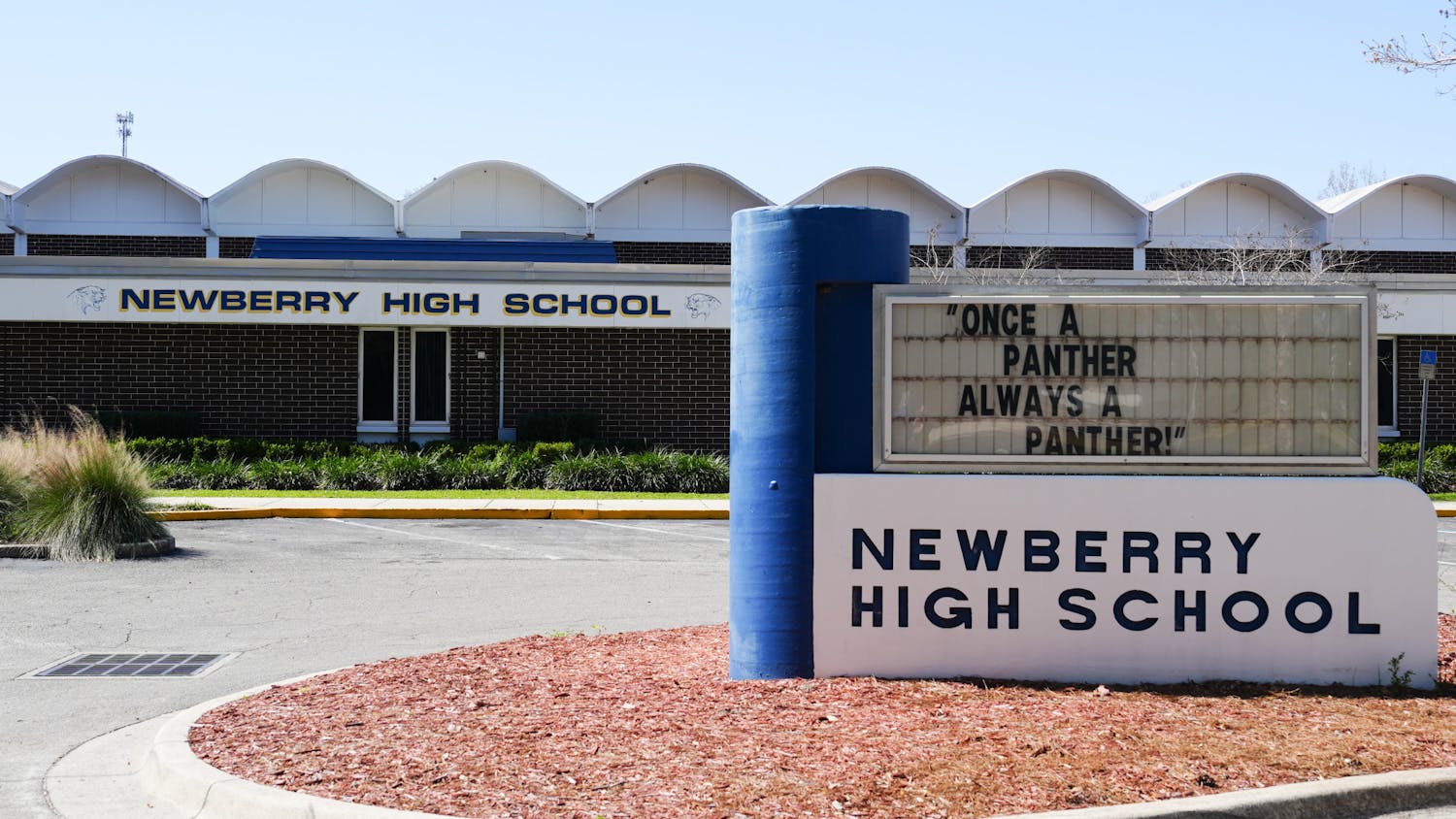The Gainesville City Commission voted Thursday night to approve a recommendation that would prohibit minors in establishments that serve alcohol. It also heard a final report about changing the city’s bus transportation system.
Commission members voted unanimously on the alcohol measure. They set preparations for the measure in motion at an October 2013 meeting.
Christine Lester, mother to a 25-year-old daugher and 23-year-old son, said after the vote that she believes it’s a smart idea. The 44-year-old Gainesville resident said allowing minors entry only promotes illegal drinking.
“As an 18-year old that’s been in a bar, yeah, they should put a stop to that,” she said. “It’s way too easy.”
Earlier in the meeting, commissioners voted to pass a 6-1 motion to re-evaluate costs for RTS improvements and present a finalized list to the county in June. Commissioner Thomas Hawkins voted in dissent.
The company that oversaw the study, Parsons Brinckerhoff, evaluated three possibilities for RTS.
The first option, called a No-Build Alternative, looks strictly at improving existing RTS conditions. A second option, the Transportation Systems Management Alternative (TSM) looked at the possibility of adding some limited stop service busses and more frequent service. The final option, called the Build Alternative (Bus Rapid Transit or BRT), suggested the features of the TSM plus enhanced stations and exclusive bus lanes.
Project manager Alan Danaher said that in 2035, ridership would have increased by 11 percent if the No-Build Alternative was implemented, while the TSM and BRT alternatives would increase ridership by 13 percent and 17 percent, respectively.
City Commissioner Yvonne Hinson-Rawls noted the opportunity for greater ridership numbers was possible, especially if increased RTS access were available to East Gainesville.
“Hopefully the new system can serve everyone who needs it,” she said.
Mayor Ed Braddy disagreed. He said the numbers seemed realistic, and the No-Build Alternative should be considered.
Danaher noted that if the city chose the No-Build Alternative, it would have to fund the alternative based solely off local money and grants. If the other models were chosen, they could possibly be partially funded by the Federal Transit Administration.
[A version of this story ran on page 1 on 3/21/2014 under the headline "Commission votes to bar minors from places that serve alcohol"]





